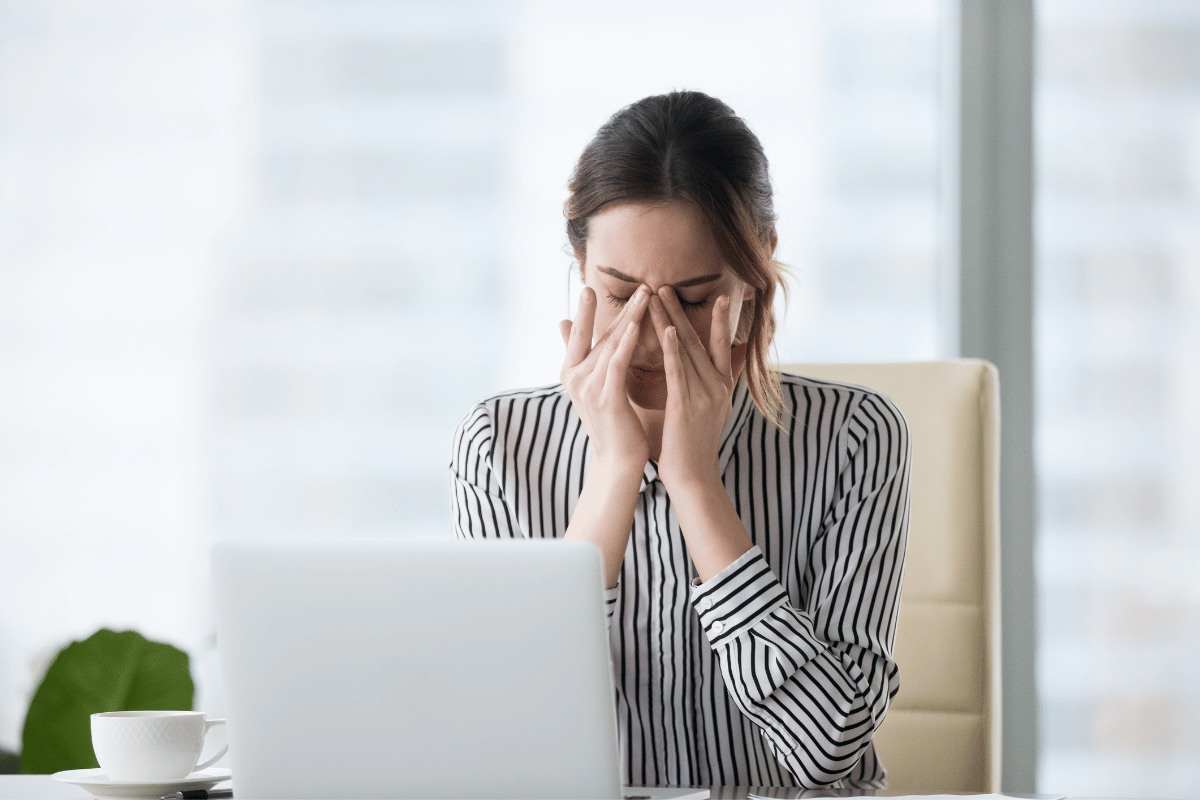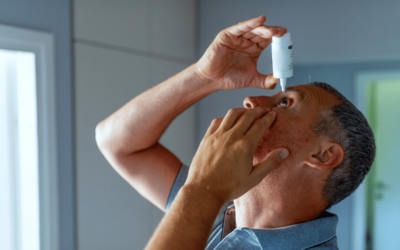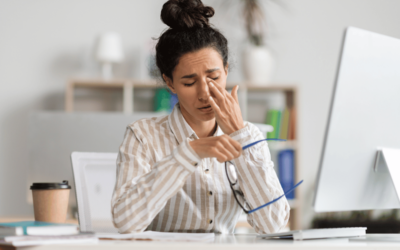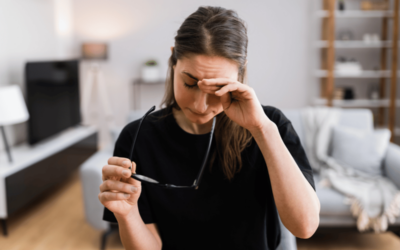Are you tired of dealing with itchy, watery, red eyes but unsure if it’s due to dry eye or allergies? Many people struggle to differentiate between the two conditions because they share similar symptoms. However, knowing the difference is crucial for finding the right treatment. In this blog post, we’ll discuss how you can determine whether you have dry eye or allergies so that you can get the relief you need.
Understanding dry eye and allergies
Dry eye happens when your eyes don’t make enough tears, or your tears don’t work correctly. This can lead to symptoms such as dryness, burning, redness, sensitivity to light, a gritty feeling in the eyes, and blurry vision. On the other hand, allergies are an immune response triggered by allergens such as pollen, dust mites, pet dander, or mold. Allergic reactions can cause symptoms like itching, redness, tearing, and swelling of the eyes.
How to tell them apart
1. Seasonality & environmental factors
One way to distinguish between dry eye and allergies is to consider the time of year and any environmental triggers that may be causing your symptoms. Allergies tend to flare up during specific seasons when allergens are more prevalent in the air. If your symptoms are worse during spring or fall when pollen counts are high, allergies may be to blame. On the other hand, if your symptoms persist year-round or get worse in air-conditioned rooms or on windy days, you may have dry eye.
2. Intensity of itching
One key difference between dry eye and allergies is the level of itching. While both conditions can cause itching, itching is usually more intense with allergies. Therefore, if you have mild or no itching, it may be dry eye.
3. Medical conditions
Another factor to consider is whether you have any other related medical conditions or risk factors for either dry eye or allergies. For instance, people with autoimmune diseases like rheumatoid arthritis or Sjogren’s syndrome are at higher risk of developing dry eye. Similarly, people with a family history of allergies are more likely to have allergies.
4. Related symptoms
It’s also important to pay attention to any other related symptoms. For example, if you have a stuffy nose, sneezing, or a sore throat along with your eye symptoms, it’s more likely that you’re dealing with allergies rather than dry eye. Additionally, if your eyes feel gritty or sandy like there’s something in them, it could be a sign of dry eye rather than allergies. With dry eye, you may also experience dry mouth or throat and have difficulty wearing contact lenses comfortably.
When to see an eye doctor
If you’re still unsure whether you have dry eye or allergies based on your symptoms and risk factors, you should visit an eye doctor for a proper diagnosis. An eye doctor can perform tests like a tear film evaluation or the Schirmer’s test to figure out what’s causing your discomfort. Once they’ve made a diagnosis, they can recommend the best treatment options to relieve your symptoms and improve your overall eye health.
For dry eye, artificial tears, prescription medications, and intense pulsed light (IPL) therapy may help lubricate the eyes and reduce inflammation. Allergy treatments may involve antihistamines (oral or eye drops), decongestants, or corticosteroids to relieve symptoms caused by allergic reactions.
In conclusion, understanding whether you have dry eye or allergies is crucial in finding the best treatment for your eyes. Pay attention to when your symptoms occur and how they respond to different treatments like artificial tears or antihistamines. If you’re struggling to determine the underlying cause of your eye issues, Louisiana Eye Care can help. Our dry eye specialists in Denham Springs are experienced in diagnosing and treating dry eye using advanced techniques like OptiLight IPL therapy. Give us a call today to schedule your evaluation!



